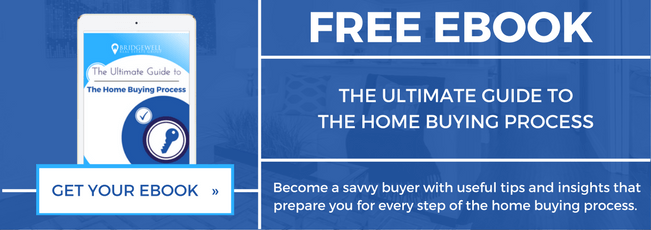Asking Price vs Selling Price: What Do They Mean and How Are They Different?
Basic Terminology, Listing Strategies, Market Value & More
The difference between asking price vs selling price is a conversation that comes up more than you might think.
This blog goes through the difference between asking price and selling price to help you determine true market value.
We go through basic terminology, home pricing strategies, how to determine market value and more important information to help you buy a home.
You’ll learn how to estimate what a property is really worth and make sure you don’t overpay.
Read for more details and everything you need to know about asking price vs selling price.
Basic Terminology: Asking Price vs Selling Price & more
It is important that you understand the basic terminology when it comes to market value and listing price. [also known as asking price].
Another couple of terms that you should know the basics of are the offer amount and also the selling price, which are typically pretty straightforward.
Asking [listing] price:
The listing price is the amount that the seller has listed the house for sale based on their goals, other sales, their home, and the demand. This is the amount the house is listed for on the Multiple Listing Service (MLS).
Selling price:
This is the amount at which the property actually sells. It is also referred to as the sale price. It may be higher, lower, or the same as the initial asking price, depending on what happens during the offer and negotiating stage.
Market value:
This is current value of a home based on local sales prices that are comparable to the subject property. There are a number of factors that affect fair market value from house to house, such as supply, demand, renovations, bedrooms, bathrooms, lot size, house size, suites, age, and more. When determining market value, it is important that you take comparable sales in the same or nearby neighbourhoods and weigh the pros and cons of each sale based on the subject property to determine an estimate for what people will pay for the property.
Offer amount:
This is the amount the buyer has offered to pay. It is written into the purchase agreement and transmitted to the seller. The offer amount can change repeatedly during the course of negotiations, or the homeowner could accept the first offer presented. It varies.
Here’s the most important thing to remember about the difference between the listing price and the actual selling price: It is the local housing market that determines the current value of a home — not the seller.
Smart sellers price their homes based on recent sales, in order to attract offers from market-savvy buyers. But not all homeowners behave this way. Some set their asking prices well above market value, and for a wide variety of reasons.
As a home-buyer, you must understand the difference between what the seller wants for the property, and what the property is truly worth in the current market.

Are market value and listing price the same thing?
Based on the above, it is quite obvious that listing price and market value are not the same thing.
At the end of the day, I always tell my clients that I do not necessarily care what it is listed for, but rather what similar properties have sold for in the area.
The comparable properties will ultimately be a better explanation of what the subject property will most likely sell for than the listing price itself.
How do sellers choose the list price of their home?
While some sellers base their asking price off of logic, others base the list price on the amount they need to get out of the deal, in order to pay off their existing mortgage balance. You’ll be able to figure out what their intention was by determining true market value of the property.
To dig in to the differences between market value and listing price, it’s helpful to understand the psychology of a seller and the listing agent when it comes to determining how to price a home.
- List below market value: If a seller is looking for a quick sale that will generate a lot of interest, they will typically list below market value. Their listing price will be seemingly inexpensive, and will therefore generate a number of people through the open houses and showings. This buzz will demonstrate to buyers a high demand, and will ultimately result in multiple offers. Because buyers will be aware that they are competing, it is likely that they will offer above the listing price and possibly subject free.
- List at market value: If the seller’s property is in high demand but they are still looking for a quick sale, then they may list at market value. If they end up receiving enough interest and multiple offers, then it is likely that the property will sell above market value as some buyers will be basing their price partially on the listing price.
- List above market value: If seller’s have a firm idea of what their home is worth, and are not in an immediate rush to sell, they may test out the market and list above market value. In the case that they do receive an offer, they can negotiate strongly to maintain listing price – or at least get something closer to their high goal price than if they were to list well below market value.
Related Article: Home Pricing Strategies 101 for Sellers
How do I know what price to offer on a home?
It can be really difficult for a buyer to wrap their head around paying $75,000 more than the asking price [synonymously known as listing price], but it’s wise of a buyer to distinguish between asking price and market value and ultimately look past the seller’s strategy to just focus on the most likely end results.
Many first-time home buyers think they should offer whatever the seller has asked for, but this isn’t always the best strategy. Every seller is different when it comes to real estate pricing strategies, and while some are realistic about local market conditions and comparable properties, others are well over-priced and are living on rainbow-island.
Because of these differences, you have to handle each home pricing scenario differently. The key to making a smart offer and determining what price to offer on a home is by evaluating similar comparables.
Related article: How to Write an Offer on a House
Real Estate Sales Tactics: Bidding Wars
The bidding war strategy is to list for below market value, and generate as many offers as possible to raise the price up. It creates a sense of urgency and a high demand for the property. By exposing the property to the highest amount of people, the idea is that you’ll generate more offers.
We understand how some headlines such as ‘home sellers for $1,000,000 over asking’ may seem discouraging for many millennials and/or first time home buyers, and that you may be inclined to think that the sky is falling because real estate is unaffordable. However, in reality these homes were sold over asking because their listing price was well underpriced.
It’s important to understand that not every home is selling for $1,000,000 over asking price. There are some that sell for above, there are others that sell for below, and then there are a number that sell exactly at listing price. Again, the listing price is a strategy, and in the majority of cases it is not the ‘end game.’
Using comparables to make an offer
We often get asked: How do I estimate market value? How do I know what to offer on a home if the listing price and market value are different? While there is no generic answer, your best bet is looking at comparable properties that have sold.
With that being said, estimating market value is much more complicated than just looking at similar properties, as it often depends on the psychology of other buyers and what they are willing to pay for the subject property. For example, if one buyer has already sold their home and needs to move in to a property in 2 weeks otherwise they’ll be homeless, they will probably be willing to pay more than someone that is in no rush to buy because they’re still renting. If the desperate buyer is willing to pay more for the home, then it becomes the new market value.
Outside of the psychology of other competing buyers, market value just comes down to using comparables to make an offer. What is the general equation for a comparable (aka comp)? Similar, recent, and within same area — those are the three most important ingredients for a good comp. A ‘Recent’ sale nowadays is anywhere between 30-90 days. The same area means that the comparable is preferably in the same subarea, and is at least in the same city. It will have a similar number of bedrooms and bathrooms, as well as interior size and exterior size if applicable. You’ll want to look at how quickly the comparables sold, and if they sold subject free. You’ll also want to factor in the quality of renovations from the solds vs. the subject property, and additional factors such as dens, views, strata fees, main roads, and more. By weighing the pros and cons of each property along with their respective values, it will help to determine what the market value of the subject property is upon the offer presentation date.
An experienced agent is your best asset
An experienced agent with a strong history of working with the difference between market value and listing price will be your best asset when negotiating offers. Having been involved in a number of real estate transactions over the years, I can tell you that sellers are up and down and in between when it comes to listing prices. Some are very realistic, and others are delusional, and it’s important that you have a realtor on your side to ensure that you don’t overpay and are actually purchasing your next home at market value.
There’s no cookie cutter answer when it comes to how much you should pay for a property based on the listing price, because ultimately the listing price has little to do with what the property should actually sell for!
To distinguish between the real estate listing price and a realistic selling price [market value], you will have to start with comparable homes that have sold recently. The more data you can collect, the easier it will be to make a reasonable offer and ultimately reach an accepted offer with the seller. Realtors have access to a history of the sales prices and more accurate details when it comes to houses that have sold, expired, terminated, and are active to provide you with a comprehensive list of comparable properties.
—
We hope that this helped to dig deep in to the differences of asking price vs selling price. If you’re thinking of buying or selling, and are looking to determine what market value is for a particular home then give us a call or text at 604-319-0200 or email [email protected] to start a conversation.



